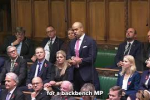
Deep-seated fears about the vaccine in the Black community must be tackled rigorously - and head-on - by community leaders
The publication yesterday of data from The Office for National Statistics detailing vaccination rates for people in England aged over-70 illustrated a worrying, but anticipated, trend; the uptake of the vaccine among the Black population is markedly low. Alarmingly, statistics for those with Black African heritage show that current uptake stands at only 58.8%. By contrast, the uptake rate for those with a white British background is 91.3%.
In an attempt to fix the problem, Sir Lenny Henry’s has written an open letter to those reluctant to take up the vaccine, co-signed by a myriad of celebrity figures from the world of acting, writing, sport, politics and academia. But is the endorsement of black celebrities likely to convince those still sceptical of the merits of a vaccine in the face of a global pandemic, particularly one well-documented as having had a disproportionately severe impact within black communities?
Yes, the sentiment of Sir Lenny’s letter is hard to fault, but the tone it strikes, sympathising with existing concerns, does little to combat current feelings of distrust or assuage fears, describing them as “legitimate worries and concerns” and “understandable fears”. Vaccine hesitancy isn’t down to trypanophobia.
So what are these worries and concerns? One of the broader reasons repeatedly cited for this hesitancy has been the issue of historical medical racism, unethical practices and the way in which black patients have been mistreated in the past. Yet the gynaecological experimentation of Dr James Marion Sims on black slaves in late 1840s Alabama is not a reason to be sceptical of a world-leading vaccination programme in the UK nearly 200 years later. Nor is the outcome of the Tuskegee Syphilis Experiment that ran between 1932 and 1972, again in Alabama, and often cited as an example despite having ended half a century ago and of no relevance on this side of the Atlantic. The deep-south, and particularly the antebellum deep-south, has never been considered a benchmark for racial equality.
A general narrative that the vaccine is unsafe due to the speed of its development, institutional mistrust of both the NHS and this Government and paranoia that black people are being used as guinea pigs has emerged unchecked via the back-channels of WhatsApp groups and community conversations, reinforced by a wider narrative perpetuated by some of the same celebrities fronting Sir Lenny Henry’s message. Actor David Harewood last month presented an hour long BBC documentary blaming the disproportionate impact of the pandemic on the non-white population upon systemic racism. Historian David Olusoga used his appearance on Radio 4’s Today programme in February to reinforce historical medical racism as a key contributor towards hesitancy. Both seem like an odd choice to provide a reassuring voice to an audience they recently informed were victims of institutional racism.
Sir Lenny Henry’s letter fits into the wider tapestry of fighting disinformation and building trust amongst a sceptical strata of the population, but it should be recognised that deep-rooted fears, possibly festering over years and decades, won’t be erased by celebrity endorsement. It's continued engagement with figures who carry grass-roots influence, community leaders, local medical professionals and respected local voices who be key to getting this message across to those who most need to hear it.




